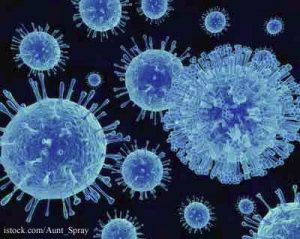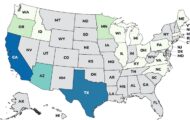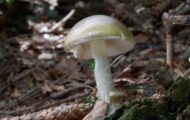The Centers for Disease Control and Prevention (CDC) is reporting that a new strain of norovirus called GII.4 Sydney has appeared in the United States. Norovirus is the leading cause of epidemic gastroenteritis in this country. Those who develop serious complications from the disease are young children, the elderly, and those with compromised immune systems.
In the past ten years, new GII.4 strains have emerged every two to three years, replacing older strains. When these new strains appear there is usually increased outbreak activity. GII.4 Sydney has caused 53% of the norovirus outbreaks reported in September-December 2012 through CaliciNet, an electronic laboratory surveillance network. Scientists believe the virus originated in Australia and was first detected there in March 2012.
 Dr. Aron Hall, epidemiologist with the CDC’s Division of Viral Diseases, said, “the new strain spread rapidly across the United States from September to December 2012. The proportion of reported outbreaks caused by this strain increased dramatically from 19% in September to 58% in December.”
Dr. Aron Hall, epidemiologist with the CDC’s Division of Viral Diseases, said, “the new strain spread rapidly across the United States from September to December 2012. The proportion of reported outbreaks caused by this strain increased dramatically from 19% in September to 58% in December.”
Norovirus is very contagious. Every year, more than 21,000,000 Americans develop acute gastroenteritis from this infection, and about 800 die. The virus spreads quickly from infected people through person-to-person contact, contaminated food and water, and from touching contaminated surfaces. Most outbreaks occur during the winter months from November to April.
To prevent infections, stay home when you are sick and don’t prepare food or beverages for others. Wash your hands frequently with soap and water, clean and disinfect surfaces often, wash your hands before preparing food, cook shellfish, meat, and poultry thoroughly, and rinse fruits and vegetables before preparing.




